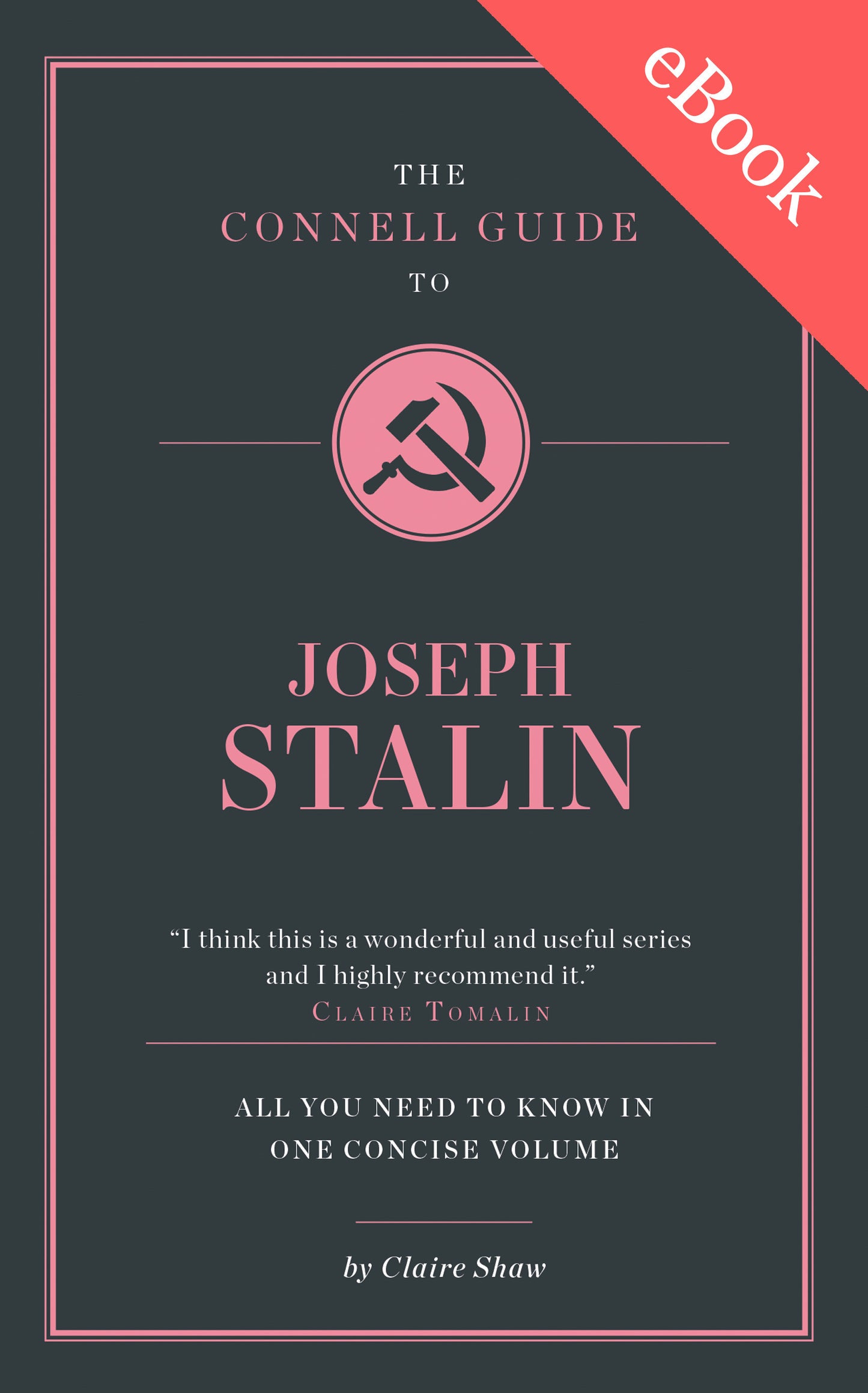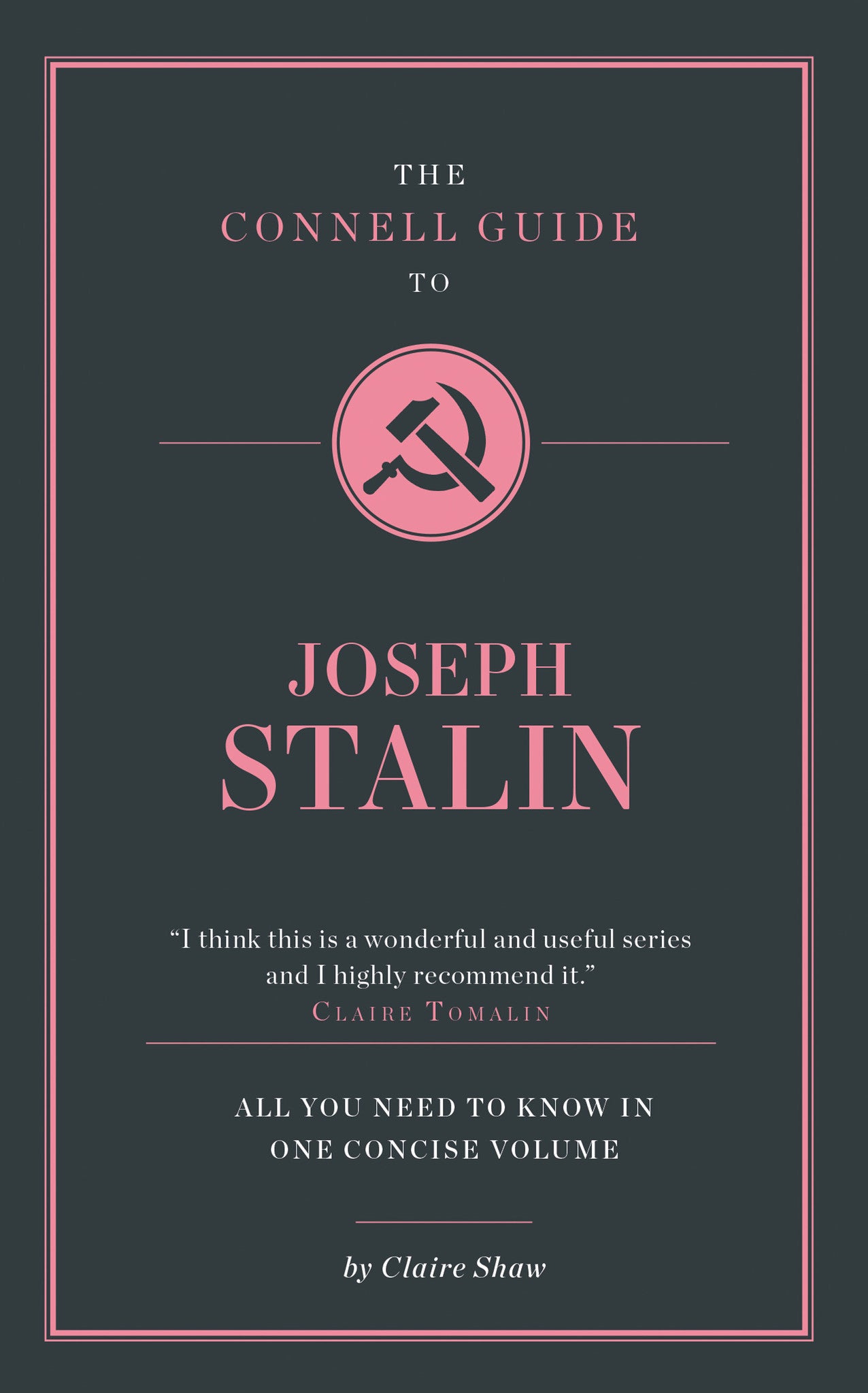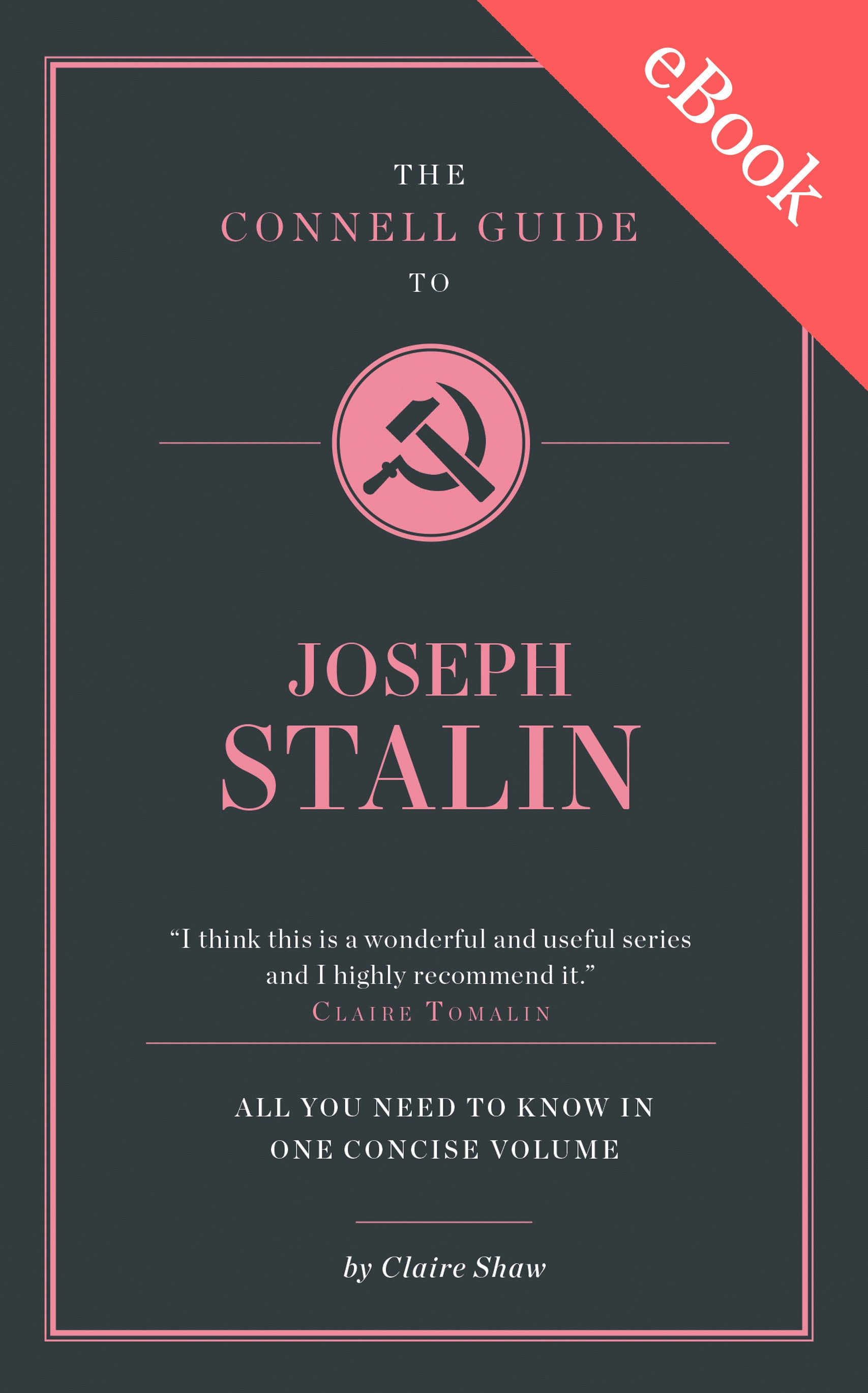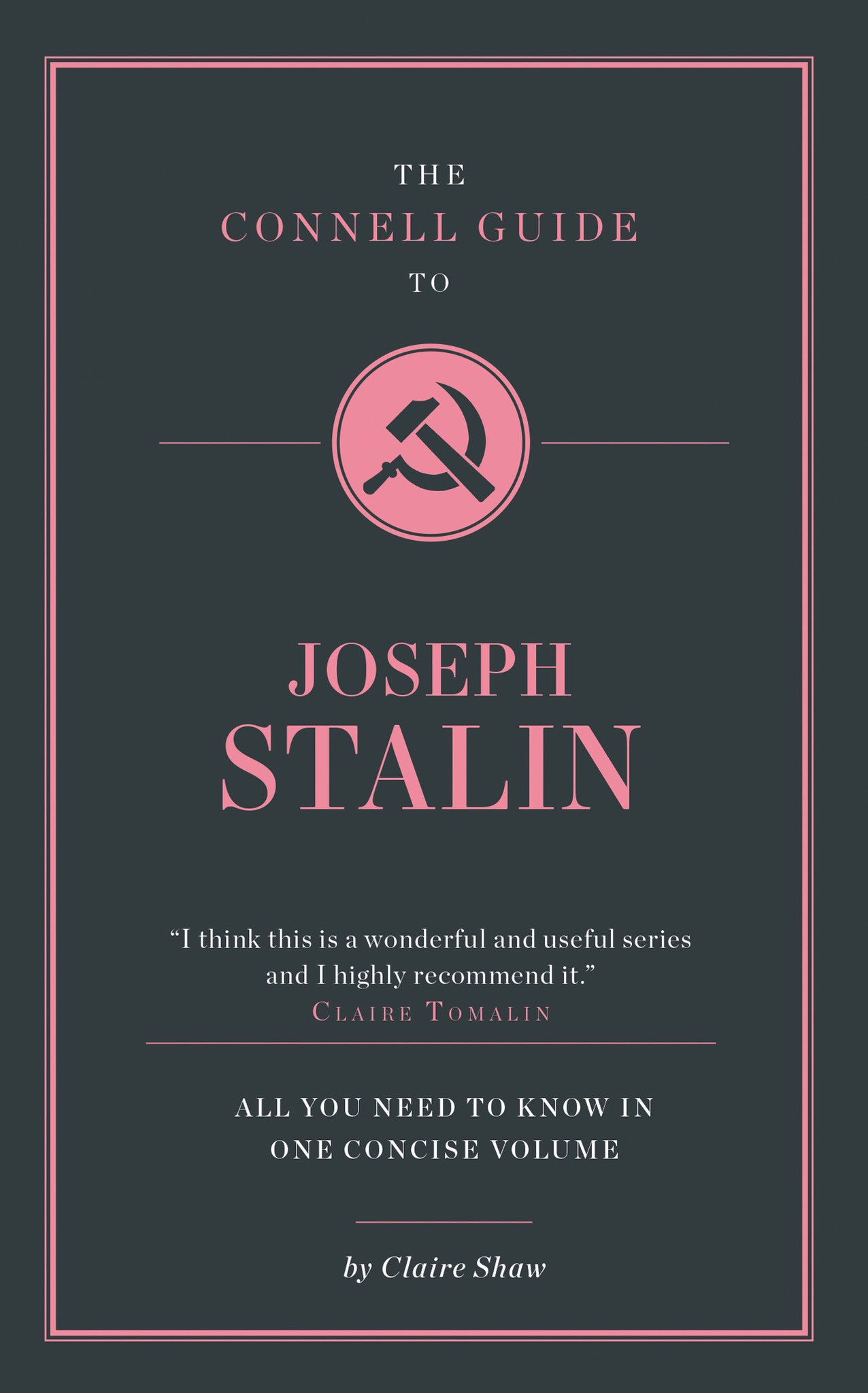The Connell Guide to Stalin
The Connell Guide to Stalin
Couldn't load pickup availability
Delivery information
All orders are being sent out Royal Mail first class, but unfortunately after 18th December we are unable to guarantee delivery in time for Christmas.
We all know Stalin, or at least we think we do. The Georgian student priest who grew up to be one of the 20th century’s most notorious mass-murderers is the subject of countless books and documentaries. Yet the man himself remains an enigma, dubbed by some as “history’s greatest butcher” and remembered fondly by others as the visionary leader who de- feated Fascism.
Drawing on a range of recent histories and biographies, Claire Shaw offers a new portrait of the dictator. She argues that Stalin was both the architect and the product of a violent revolutionary moment: only by considering both the man and his era can we begin to understand the horrors, and the problematic legacy, of his decades in power.
ISBN-paperback: 978-1-911187-41-7
Contents
Why are we still talking about Stalin?
How did Dzhugashvili become Stalin?
How did Stalin gain control of the Communist Party?
What was Stalin's vision for the USSR?
Who were the women in Stalin's life?
Did Stalin have hobbies?
What happened during the Purges?
What was Stalin's Cult of Personality?
Was Stalin's power absolute?
Did Stalin win the Second World War?
What happened in Stalin's twilight years?
What do Russian's think of Stalin now?
NOTES
Dodging the Secret Police
Stalin in 1917
The Stalin Constitution
Ten Facts about Stalin
Counting the dead
In the name of Stalin
Stalin the Poet
Death of a Leader
Things Stalin (may have) said
Key quotations about Stalin
A brief chronology
Further reading
eBook Options
If you will be reading this eBook on any Apple device, or on any device with EPUB reading software, please select the option 'eBook'. This will sync the eBook with your eBook library on your device. For all other devices, we recommend the PDF eBook option.




